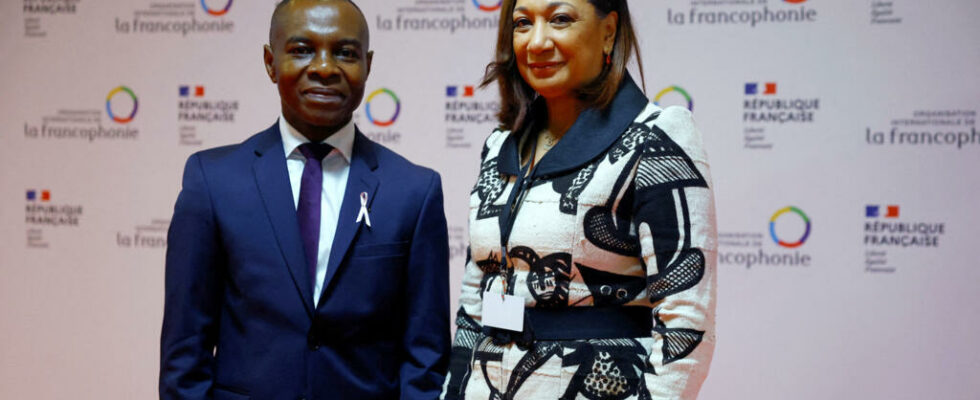Côte d’Ivoire encourages the International Organization of La Francophonie to open a dialogue with Mali, Burkina Faso and Niger, currently suspended from the institution. This is what Françoise Remarck, Ivorian Minister of Culture and La Francophonie, declared on RFI on the occasion of the 19th OIF summit in Paris. The organization’s secretary general told the three Sahelian states on Friday that her hand was outstretched. This Saturday, the minister welcomes it.
4 mins
RFI: Madam Minister, what is Ivory Coast doing for the Francophonie?
Françoise Remarck: As you know, Côte d’Ivoire is one of the founding countries of La Francophonie. In the 1970s, Côte d’Ivoire joined the Francophonie quite quickly, and that is why it plays a fairly important role there. She is the fourth speaker. It is currently present at several levels, since Côte d’Ivoire is today at the presidency of the conference of ministers of the Francophonie, but also at the head of the membership committee for new members, an extremely important committee. when we see today the will and the transformation that is being made by the general secretary, Louise Mushikiwabo. And the President of the Republic (Alassane Ouattara, Editor’s note) is also very active in the Francophonie. Recently, a voluntary contribution was made to support the transformation work carried out by the Secretary General of La Francophonie.
In the Francophonie, many are surprised by the reintegration of Guinea, while two figures of civil society have disappeared for three months in the country. What do you think?
The French-speaking world had the habit of systematically suspending countries in which there was a break in the democratic approach. This was the case with Niger, Burkina Faso and Mali. But precisely, the Francophonie also advocates values around dialogue, around listening, around mediation. A monitoring mechanism has been put in place so as not to weaken the populations, in particular, who are also impacted by these crises, this must not be forgotten. And it was at the end of these sanctions that the French-speaking area considered another approach, with the establishment of this space for monitoring, evaluation, and why not an outstretched hand, through of course the willingness of States to wish to reintegrate, and also to wish to be in agreement with these reintegration mechanisms. This was the case for Guinea which, from the start, made an approach with the presence of the Guinean minister. The latter demonstrated the Guinean desire to be part of this democratic desire, with very concrete elements. And in particular a new Constitution. But the French-speaking area does not give a blank check; this mechanism allows for an evaluation every six months. So yes, Guinea has been reinstated, congratulated. The fact remains that Guinea will be monitored for six months with criteria to be respected. And we hope that these criteria will be respected, so that there is no other sanction.
Three other West African countries remain suspended from La Francophonie, namely Mali, Burkina Faso and Niger. Do you communicate with them? Or are all bridges burned?
Yesterday (Friday, Editor’s note), the general secretary indicated that she wants the door to remain completely open. You know that the President of the Republic is very attached to the values surrounding dialogue. Ivory Coast, moreover, is home to a large number of nationals from Burkina Faso and Mali. Ivory Coast is now home to refugees. She enrolls students who, today, are forced to come to Ivory Coast due to the crisis. So, she is really very attached to this whole approach around dialogue. And I think that the Secretary General, yesterday in her speech, opened this door to dialogue. The hand is outstretched, and we hope that these countries will take advantage of this opportunity to respond to this outstretched hand.
Also listenNana Akufo-Addo: “Ghana cannot turn its back on Burkina Faso”
